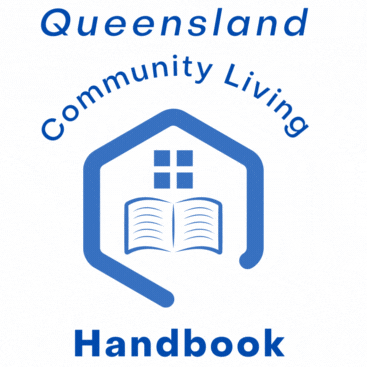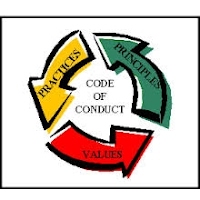
Management Rights

A traditional Management Rights business has three core elements:-
- The ownership of a property in a community titles scheme.
- A contract for the caretaking of common property i.e. gardens, swimming pools, pathways, etc.
- An authorization to rent lots for owners in the scheme as their letting agent.
Normally a Managers Unit in the complex needs to be purchased and there is often title for the exclusive use of an office/reception area as well as access to plant and equipment necessary to do the Caretaker Agreement Duties or Tasks.
The financial returns from management rights businesses are very identifiable and unique as its income is obtained from sources which theoretically cannot go broke, something that cannot be found in many business environments.
The Body Corporate salary is a fixed monthly payment from the Body Corporate as outlined in the Caretaker Agreement and every owner in the Community Titled Scheme pays a portion of this salary as part of their levies.
The Letting income is detailed in the Letting Agreement with the property owners and this letting income is a percentage of rent collected.
The operation of a management rights business can be applied to all styles of property developments – from the traditional unit, townhouse, villa or resort-style developments to more recent innovations such as corporate letting, student accommodation, and retirement villages.
Under the guidelines of the BCCM Act the maximum term of a Management Rights agreement is 10 years under the Standard Module and 25 years under the Accommodation Module. The term can be extended for up to 5 years provided the “unexpired term” of the Management Rights agreement is not more than 10 years under the Standard Module and not more than 25 years for the Accommodation Module.
Management Rights are regarded as an incredibly safe business proposition, but they are very ‘people focused’.
If you get on well with people, the management rights industry may well suit you.
It is always important to know what is expected of you and to understand the true nature and extent of your duties. Most disputes that arise between body corporates and resident managers are related to issues about the performance of the caretaking duties and most of these come about from differing expectations about the role of each party under the caretaking agreement.
The body corporate will pay you a fixed remuneration in exchange for your caretaking services, which is usually paid monthly in arrears. Because of your relationship with the body corporate is that of an independent contractor (and not as an employee), you will usually need to add GST to that salary. This means you then have to deal with your own tax and superannuation needs out of that remuneration.
Owners are free to use their property as they see fit. This means that owners are not required to let their units. They may choose to live in the unit or leave it untenanted. They can use the letting services of an outside letting agent. Most prefer to deal with a resident manager because there is a common interest in the betterment of the complex as a whole.
Payment for the letting services comes from each owner who uses those services. You must enter into a separate contract known as a letting appointment with each owner who wants to let their unit through you, which details the basis on which you will act for that owner. There is a standard statutory form for this which should have some additional conditions added to it to cover matters the statutory form does not.
You may earn additional income from tenants or guests by providing additional services. Generally, the scope for additional income streams is greater in holiday or short term buildings. Additional services may include things like cleaning, linen, repairs, and maintenance, equipment hire and sales of tours and theme park tickets.
The management rights business is not that simple. There is no public database of sale prices because each management rights business is different in some respect. What you are paying for in goodwill with a management rights business is the right to earn the income derived from it for the remaining term of the management rights agreements. The value for that right is usually reduced down to a multiplier (i.e. 4 times) the net profit of the business.
As a simple example, a business netting $100,000 on a 4 times multiplier is worth $400,000. Another (and perhaps more traditional way) to look at that calculation is that you get a 25% return on your business investment.
That methodology doesn’t reference the real estate component and some buyers look at the investment return on an overall basis which includes the real estate. If there was a $400,000 unit involved with this mythical business of $400,000, the return on investment would be 12.5% ($100,000 return from a total investment of $800,000)
There are many reports and approvals you will need to pay for when purchasing management right:
1. Accounting verification
2. Legal due diligence
3. Finance approval
4. Body Corporate / Owners’ Corporation consent
The average acquisition costs are about 6% of the purchase price, eg to purchase an $800,000 Management Rights Business you will need to budget for $48,000 acquisition expenses.
In all multi-unit complexes there are areas such as pathways, gardens, pools, tennis courts, etc which make up Common Property.
The Body Corporate pays the Manager a salary, monthly in arrears, to maintain the Common Property, see that the By-Laws are adhered to and report on any matters pertaining to the complex, you may think of it as a caretaker’s salary.
The Body Corporate also pays for all the day-to-day expenses of looking after the common property. Such things as mower fuel & repairs, pool chemicals & fertilizer are expenses for the Body Corporate, not the Manager. Usually, all the necessary equipment is owned by the Body Corporate and provided for the use of the Onsite Property Manager.
The Body Corporate salary is usually indexed to the CPI, to allow for automatic annual increases.
Other sources of income for the Manager include repairs and maintenance for landlords, cleaning charges, monthly statement fees. In holiday complexes you can earn a substantial additional income from such additional areas as; room cleans after each guest books out, linen hire, telephone and Internet usage, sporting equipment hire and tour and hire car bookings.
The ROLE of the Resident Manager( or Management Rights owner) is to ASSIST the Body Corporate to oversee the maintenance or repairs of the building, the upkeep of the common property, attend meetings and keep records for governance compliance.
Resident Managers must satisfy the requirements of the Workplace Health and Safety Act and the Body Corporate and Community Management Act 1997.
Managers ARE NOT responsible for:
- enforcing the Body Corporate by-laws or
- to act as security guards or
- any disputes between the resident’s property.
The Managers ARE responsible for REPORTING any breaches of the By-Laws to the Body Corporate Committee for them to decide on, then implement, the steps they feel justified to remedy the said By-Law Breach.
The Management Rights owner is automatically a member of the Body Corporate Committee – but with no voting rights.
Being present at committee meetings enables the manager to give timely reports about the maintenance and other issues concerning the complex.

The Body Corporate has nothing to do with the Letting Agreement which is part of the Management Rights business.
The Management Rights owner only has to take directions from 1 nominated Body Corporate Committee member which is normally the Chairman.
Queensland Community Living Handbook

Steve Reynolds e: qldclh@gmail.com PO Box 394 Surfers Paradise.4217